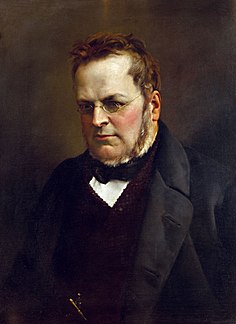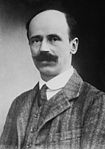
Parliamentary elections were held in Macedonia on 18 October 1998, with a second round on 1 November. VMRO-DPMNE emerged as the largest party, winning 49 of the 120 seats, and later formed a coalition government with Democratic Alternative and the Democratic Party of Albanians.

Parliamentary elections were held in Hungary on 9 April 2006, with a second round of voting in 110 of the 176 single-member constituencies on 23 April. The Hungarian Socialist Party emerged as the largest party in the National Assembly with 186 of the 386 seats, and continued the coalition government with the Alliance of Free Democrats. It marked the first time a government had been re-elected since the end of Communist rule.

Folketing elections were held in Denmark on 22 April 1918, the first in which women could vote. The result was a victory for Venstre, which won 45 of the 180 seats in the Folketing, which had been expanded from 114 to 140 seats. Voter turnout was 75.5%.

Early parliamentary elections were held in Iceland on 25 and 26 October 1959. Following the electoral reforms made after the June elections, the Independence Party won 16 of the 40 seats in the Lower House of the Althing.

Parliamentary elections were held in Hungary between 28 May and 2 June 1922. The result was a victory for the Unity Party, which won 140 of the 245 seats in Parliament, the vast majority in "open" constituencies where there was no secret ballot.

Parliamentary elections were held in Hungary between 28 and 30 June 1931. The result was a victory for the Unity Party, which won 149 of the 245 seats in Parliament. István Bethlen remained Prime Minister, but resigned on 24 August due to the effects of the Great Depression and was replaced by Gyula Károlyi.

Parliamentary elections were held in Hungary between 31 March and 7 April 1935. The result was a victory for the Party of National Unity, which won 164 of the 245 seats in Parliament. Gyula Gömbös remained Prime Minister.

Parliamentary elections were held in Hungary on 28 and 29 May 1939. The result was a victory for the Party of Hungarian Life, which won 181 of the 260 seats in Parliament. Pál Teleki remained Prime Minister. It won 72 percent of the parliament's seats and won 49 percent of the popular vote in the election. This was a major breakthrough for the far-right in Hungary.

General elections were held in Italy on 27 January 1861, with a second round on 3 February. The newly elected Parliament first convened in Turin on 4 March 1861, where, thirteen days later, it declared the unification of the country as the Kingdom of Italy.

General elections were held in Italy on 29 October 1882, with a second round of voting on 5 November. The "ministerial" left-wing bloc emerged as the largest in Parliament, winning 289 of the 508 seats.

Parliamentary elections were held in Latvia on 7 and 8 October 1922. The Latvian Social Democratic Workers' Party remained the largest party, winning 30 of the 100 seats.

Parliamentary elections were held in Latvia on 6 and 7 October 1928. The Latvian Social Democratic Workers' Party remained the largest party, winning 25 of the 100 seats.

Parliamentary elections were held in Portugal on 3 November 1957. The ruling National Union won all 120 seats.

General elections were held in Romania in June 1939. The Chamber of Deputies was elected on 1 June, whilst the Senate was elected a day later. They were the first since the introduction of the royal dictatorship of King Carol II under the 1938 constitution. Voters were presented with a single list from the National Renaissance Front, which had been the only legally permitted party in Romania since December.

Parliamentary elections were held in Romania on 9 March 1975. The Front of Socialist Unity, dominated by the Romanian Communist Party and including other mass organisations, was the only organisation that contested the election. No prospective candidate could run for office without the Front's approval. The Front won all 349 seats in the Great National Assembly.

Federal elections were held in Switzerland on 27 October 1872. The Radical Left remained the largest group in the National Council.

Federal elections were held in Switzerland on 31 October 1875. The Radical Left remained the largest group in the National Council.

Federal elections were held in Switzerland on 30 October 1881. The Radical Left remained the largest group in the National Council, regaining the majority they had lost in 1863.

Federal elections were held in Switzerland on 30 October 1887. The Radical Left narrowly retained its majority in the National Council.

Parliamentary elections were held in Portugal on 22 November 1822.























